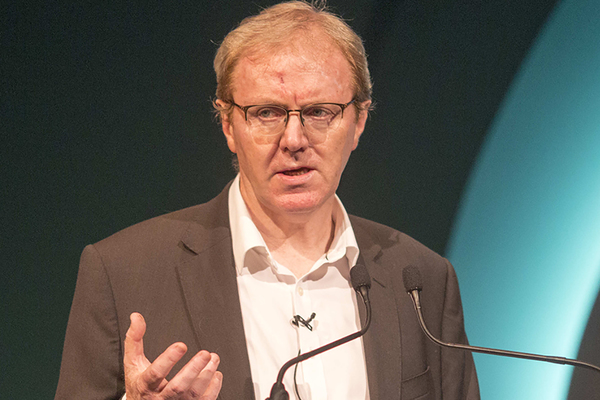Filling the housing research gaps
As a competition to find the junior housing researcher of the year gets under way, Carl Brown looks at trends in research and where the gaps might be
“Take nothing on its looks; take everything on evidence. There’s no better rule,” said Mr Jaggers, a character in Charles Dickens’ Great Expectations.
It is advice the social housing sector seems keen to follow, given the surge in activity and interest in housing research over the past few years that has been shown by the proliferation of new groups set up to provide and promote research aimed at improving practice and influencing policymakers.
In 2017 the UK Collaborative Centre for Housing Evidence (CaCHE) was set up. A consortium of 14 institutions, including several universities and the Chartered Institute of Housing, its aim is to “produce evidence and new research which will contribute to tackling the UK’s housing problems”.
Then there is Research Users in Social Housing (RUSH), which was formed four years ago and has attracted more than 80 housing organisations. It allows research and policy staff to network and share insight and research.
But it is not just developing and sharing original research that has seen an increase recently. There is also an appetite for making sense of the multitude of housing research papers that are published each month.
Thinkhouse is a website in its second year that collates and critiques the latest housing research, and produces exclusive monthly reviews for Inside Housing.
Last month it opened entries for its Early Career Researcher’s Prize (see box below), which allows junior researchers to submit pieces and win the chance to showcase their work.
The aim of the prize, which is supported by Inside Housing, is to encourage new ideas, with a focus on pieces that “cover ways to increase the amount and quality of the UK’s housing stock and the related economic, social and community benefits”.
So as the sector’s researchers increasingly share research ideas, and more junior staff consider their entries for the Thinkhouse prize, which topics are currently being covered in the sector? And where do the research gaps need to be filled?
The Thinkhouse editorial panel assessed 114 reports in 2018, which it categorised as covering 18 different topics (see graph).
‘Downsizing/demographics’, ‘renting and the PRS’, ‘homelessness and rough sleeping’, ‘housing associations’ and ‘land planning and the green belt’ were the subjects written about the most.
‘Local authorities and devolution’ was the most popular topic in 2017, accounting for 17% of the 47 reports assessed, but it appears to have slipped down the rankings last year, perhaps reflecting the fact that changes to government policy on devolution are now more advanced.
Tony Price, co-ordinator at RUSH, says there is work under way by RUSH members on topics such as customer experience, Universal Credit and added value activities for housing associations such as employment and training, along with projects on intergenerational housing.
Senior sector figures were not shy in suggesting where the current gaps in research are.
Phil Brown, professor of social change at the University of Salford and a judge for the Thinkhouse Early Career Researcher’s Prize, says: “I think digital is an under-explored area in housing and there is a danger that a few quick-off-the-mark companies lead the way and constrain its incorporation rather than housing associations work out what they need.”
Chan Kataria, chief executive of EMH Group, wants to see “research being done into the impact our older stock is having on the environment and what we should be doing”.
There is a need for more publications on quality in the construction industry, suggests Geeta Nanda, chief executive of Metropolitan Thames Valley. She thinks that the role of housing associations in communities and the economics of housing for older people also needs more analysis.
Professor Ken Gibb, another judge for the Early Career Researcher’s Prize and director of CaCHE, says the sector needs more work on how to use the Treasury’s Green Book to demonstrate to ministers the economic benefit of its work.
“Social housing doesn’t seem to speak a consistent, common language to the people who matter in government,” he says.
Brendan Sarsfield, chief executive of Peabody, agrees. He says that the sector “lacks the data to effectively influence policy at all levels”.
After all, shouldn’t the purpose of research be to make a change?
That is exactly what one of the key criteria of the Early Career Researcher’s Prize is about. Judges will be taking into account whether research entries are scaleable, for example, do they have the scope to make a widespread difference to the sector?
Last year's prize winner, and 2019 judge, Anya Martin
“The question you can always ask about a piece of research is ‘so what?’,” says Tristan Carlyon, senior research manager at the National Housing Federation.
“What does this actually mean for tenants and the people using services, our members. What does it mean for housing providers and how they operate?”
For Mr Carlyon, this often means ensuring that research findings are placed within wider policy context, with the benefits of housing to other areas of society made explicit.
It is widely agreed that research needs to contribute to a robust evidence base that could help influence policymakers.
But can research actually have that much influence on government?
Stephen Aldridge, director for analysis and data at the Ministry of Housing, Communities and Local Government and another one of the prize judges, insists that it regularly does.
“Data and analytical work can help us understand problems of various kinds and what’s driving them, and ways in which areas need to improve. It can also help us to understand the impact of what we are doing,” he says.
Social housing leaders across the country will be hoping that projects such as CaCHE, RUSH, Thinkhouse and the Early Career Researcher’s Prize will not only improve the sector’s understanding, but will also help to influence government.
Ministers would then have no excuse for not following Mr Jaggers’ lead and taking “nothing on its looks”.
The Thinkhouse Early Career Researcher’s Prize 2019
What is it?
Thinkhouse, a website that collates and critiques housing research and provides monthly research reviews for Inside Housing, is now looking for entries to its Early Career Researcher’s Prize.
The prize, which is in its second year and is supported by Inside Housing, aims to give researchers in the early stages of their career “an opportunity to showcase their work to a wide and influential audience”.
It is open to those with up to eight years’ research experience, with or without a PhD, and those working in non-academic as well as academic institutions.
Entries are encouraged from the voluntary sector, thinktanks, housing associations, local authorities and journalists.
Those wanting to enter should submit a piece of research between 4,000 and 8,000 words in length. The panel will consider think pieces, papers reviewing existing evidence and policy analysis or investigative journalism. Journal articles or other papers already published or under review will be accepted.
Thinkhouse’s preference is for research pieces that “cover ways to increase the amount and quality of the UK’s housing stock and the related economic, social and community benefits of doing so” but those with other housing-related research pieces are advised to get in touch.
Papers must be emailed to info@thinkhouse.org.uk by the end of September 2019.
The winner will receive £500 and a year’s Inside Housing subscription. They will also have their award win reported by Inside Housing and their paper published on the Thinkhouse website.
The judges will focus on the following areas:
- Writing style/clarity
- Engagement with literature and theory
- Methods
- Empirical rigour/theoretical depth
- Strength of conclusions
- The extent of how the research is outcome and impact-focused so that it contributes to useful knowledge exchange
- The scalability of the research (ie the scope to make a widespread difference)
Who is on the judging panel?
- Stephen Aldridge, director for analysis and data, Ministry of Housing, Communities and Local Government
- Carl Brown, head of engagement, Inside Housing
- Professor Phil Brown, professor of social policy, University of Salford
- Professor Ken Gibb, director, CaCHE
- Richard Hyde, founder and editorial panel chair, Thinkhouse
- Anya Martin, winner of the Early Career Researcher’s Prize 2018
- Steve Moseley, group director of governance, strategy and communications, L&Q
- Jennifer Rolison, marketing executive, Altair
What housing research do we need more of? Your views
“During the recent Extinction Rebellion protests in London, environmentalists were asked what could be done in the short term to help halt climate change. One of the key replies was that insulating the UK’s older housing stock should be a national infrastructure priority.
“With new properties we are starting to make an impact, for example with the development of Passivhaus homes and the installation of air source heat pumps, but with the social housing sector collectively being one of the largest property owners in the UK, I would like to see some research being done into the impact our older stock is having on the environment and, given that we have immense procurement power, what we should be doing now to help address the crisis.”
Chan Kataria, chief executive, EMH Group
Picture: Julian Anderson
“For decades much has been written about the physical regeneration of areas and the benefits to communities. Housing associations have been at the heart of this, transforming areas across the country, yet there is little recognition of them as a vital community anchor. Our strong presence within communities often only comes into focus when other organisations and services come and go, or finally withdraw from areas. We are community anchors, yet we are not always perceived that way. Research on where – and how – housing plays that pivotal community anchor role would be useful.
“Another possible area of research would be around quality in the construction industry. Following the Hackitt Review, quality issues have been exposed – however important questions still need to be answered. How do we ensure we understand the changes in the industry that led to this situation? And importantly, how can this situation be reversed? What exactly does quality look like? What does quality mean?
“Finally, what are the economics of good housing for older people? With changes in the external environment, what do we, as housing providers, need to do to enable people to live in their homes for longer – incorporating both physical and social aspects of care. What do we need to do to prepare our staff to achieve this – and to put in place the necessary integrated, wraparound services?”
Geeta Nanda, chief executive, Metropolitan Thames Valley
“The housing sector lacks the data to effectively influence policy at all levels.
“We need long-term certainty to deliver, but without a robust evidence base establishing social housing as a critical priority for government, the sector is left open to political swings and opinions.
“We all need to be more evidence and data driven if we are to make best use of resources for the benefit of our residents and customers.”
Brendan Sarsfield, chief executive, Peabody
What is Thinkhouse?
Thinkhouse was formally launched in spring 2018, and aims to “provide a single location and summary of the best and most innovative research pieces, policy publications and case studies”.
It specifically looks at reports that propose ways to boost the amount and quality of housing and the economic, social and community issues of not doing this.
The Thinkhouse editorial panel highlights the ‘must-read’ reports, blogs about them and runs the annual Early Career Researcher’s Prize.
The panel includes current and former housing association chief executives, academics, lawyers, economists and consultants. It is chaired by Richard Hyde, chief executive of a business that sells construction hand tools.
Who is on the panel?
Richard Hyde | Chair of Editorial Panel, CEO of HYDE |
Gemma Duggan | Head of Compliance and Performance at Extracare |
Chris Walker | Economist |
Brendan Sarsfield | CEO, Peabody |
Mick Laverty | CEO, Extracare Charitable Trust |
Martin Wheatley | Senior Fellow, Institute for Government, |
Kerri Farnsworth | Founder & MD, Kerri Farnsworth Associates |
Suzanne Benson | Head of Real Estate for the Manchester office of Trowers. |
Burcu Borysik | Policy Manager at Revolving Doors Agency, |
Ken Gibb | Professor in housing economics at the University of Glasgow, Director of CaCHE |
Peter Williams | Departmental Fellow, Department of Land Economy, University of Cambridge |
Brian Robson | Executive Director of Policy and Public Affairs at the Northern Housing Consortium |
Francesca Albanese | Head of Research and Evaluation at Crisis |
Jules Birch | Journalist and blogger |
Susan Emmett | Head of Engagement for Homes England |
Mark Farmer | Founder and CEO Cast Consultancy |
Steve Moseley | Group Director of Governance, Strategy & Communications at L&Q |
Jennifer Rolison | Head of marketing at Aquila Services Group |
Philip Brown | Professor of Housing and Communities at the University of Huddersfield |
Anya Martin | Senior researcher at the National Housing Federation |
Emily Pumford | Policy & strategy advisor, Riverside |
Anthony Breach | Analyst, Centre for Cities |
Shahina Begum | Customer Insight Office, Peabody |
Related stories

















